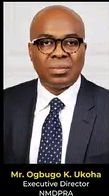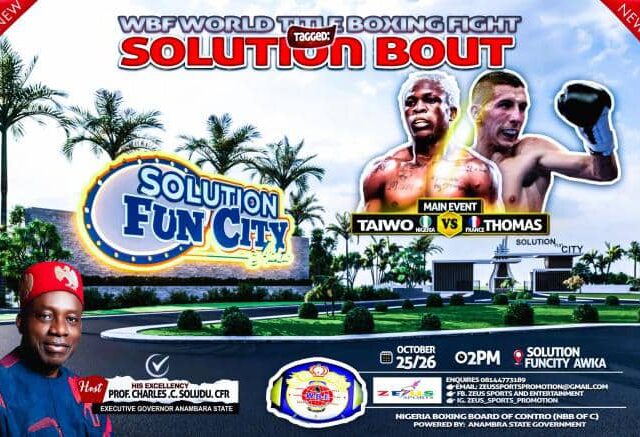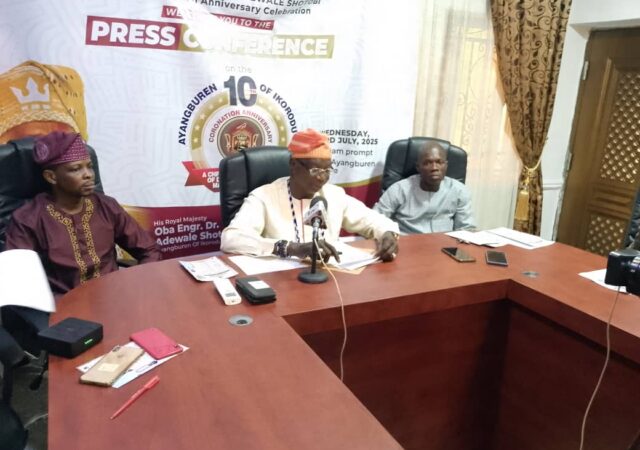Mr. Ogbugo Ukoha, the Executive Director, Distribution, Storage System and Retail Infrastructure at the Nigerian Midstream and Downstream Petroleum Regulatory Authority (NMDPRA), has highlighted significant inefficiencies and cost challenges in Nigeria’s petroleum distribution infrastructure.
Speaking at Day Two of the 2024 OTL Africa Summit in Lagos, Ukoha urged for greater investment in Nigeria’s coastal and port facilities to address these issues.
During his presentation at the summit’s “Nigeria Fuels Congress: Issues in Pricing, Policy, Profits, and Market Access” session, Ukoha emphasized the need to enhance port infrastructure to reduce the additional costs incurred from smaller vessels and limited draft channels.
“The probability to receive LR1 vessels that can bring in 90,000 to 150,000 metric tonnes is limited, and at MRS, we can do up to 60,000 tonnes,” he said.
“Imagine when we were importing petrol directly from Rotterdam, we could bring in 90-kilotonne vessels directly to discharge points. Now, vessels have to go through Lagos anchorage, where we do ship-to-ship (STS) transfers and parcel cargoes of 20,000 to 30,000 tonnes to smaller vessels that undertake multiple 10-day voyages to Calabar,” Ukoha explained.
He noted that charter costs could be as high as $50,000 to $100,000 per day, adding to the operational inefficiencies that drive up costs.
“These are inefficiencies we can eliminate,” he continued. “It’s not just about the availability of coastal vessels, but also about the channel draft which is insufficiently deep. People are paying extra, and all of these inefficiencies accumulate and affect the overall cost.”
To mitigate these challenges, the NMDPRA has called for investments in Nigeria’s coastal infrastructure, including dredging and port upgrades to accommodate larger vessels, a move that would lower overall transportation costs.
Ukoha also referenced a recent inspection with NMDPRA’s Executive Vice President, Downstream, illustrating the impact of infrastructure limitations.
“A few days ago, we were at the Tippy Sole [Tincan Island Anchorage], watching as vessels were queued up at Escravos because one vessel had gone aground. This required evacuation and took many days to resolve. Important ports like Warri, Koko, and Ogara have just a 6.5-meter draft at the channel entrance, which means vessels risk running aground,” he said. “These are critical inefficiencies, and the solution is the right investment and funding.”
He urged commercial banks to collaborate with investors, targeting this sector, noting that with proper funding, the industry could reduce operational costs and improve efficiencies.
Ukoha pointed out that Lekki, with Pinnacle and Dangote’s sea port facilities, is one of the few areas with sufficient reception facilities for large vessels. He added that Apapa Jetty infrastructure urgently requires upgrades to support operational demands.
“Only in Lekki, Pinnacle and Dangote have SBL [Single Buoy Mooring] that can receive MR1 vessels. We need more of these facilities, and Apapa Jetty’s infrastructure needs substantial improvements and upgrades,” he emphasized.
Highlighting additional inefficiencies in the petroleum supply chain, Ukoha lamented that distribution is primarily conducted by trucking, which is costly and risky, and he stressed the need for investment in pipeline infrastructure.
“The cheapest and most efficient global means of transporting products is by pipeline, and we need to return to that. Rail transport also presents opportunities, but currently, we rely heavily on trucks. Trucking is an unsustainable and risky way to transport petroleum products,” he remarked.
He illustrated the dangers of truck transport, referencing a mass grave in Jigawa containing over 70 bodies of unidentified individuals killed in trucking accidents.
“This is tragic,” he said, describing the scene. “We need to encourage more investment in pipelines.”
Ukoha also highlighted the importance of technology in addressing petroleum diversion, particularly near Nigeria’s borders.
“We have large borders with a high risk of petroleum product diversion. While it is not NMDPRA’s responsibility to monitor borders, we work closely with Customs under Operation Whirlwind. The regulator is considering mandating transporters to adopt fully automated trucks to provide end-to-end visibility of petroleum product movements.”
He also encouraged full automation of licensing operations within the regulatory framework and urged marketers to adopt these technologies to ensure transparency.
Discussing the state of retail outlets, Ukoha suggested rewarding customer-centric and profitable retailers annually to incentivize industry improvements.
“Before the unbundling of the Department of Petroleum Resources (DPR), retail outlets required storage for diesel, kerosene, and petrol before approval. With kerosene now obsolete and diesel’s market share expected to decline, petrol is the only product offered. As Nigeria shifts towards LPG and CNG, we need retail outlets to diversify,” he explained.
Speaking on the NMDPRA’s plan for a national strategic petroleum reserve, Ukoha outlined the recent gazetted regulation establishing a 60-day storage capacity for all petroleum products. This reserve is designed to stabilize supply and prices during emergencies, like recent floods in the Lokoja area that threatened northern Nigeria’s product supply.
“NNPC has extensive storage capacity in northern Nigeria, and we look forward to collaborating with them and other stakeholders to implement this,” Ukoha said.
The new strategic products reserve regulation, Ukoha added, is not merely about locking up capital in stored products. Instead, it aims to provide a secure supply chain capable of withstanding unforeseen disruptions.








Thanks a lot for sharing this with all people you really recognize what you are talking approximately! Bookmarked. Kindly additionally seek advice from my web site =). We can have a link trade arrangement among us!
My spouse and i felt absolutely glad when Ervin could deal with his investigation out of the ideas he made while using the web site. It’s not at all simplistic to just continually be freely giving strategies people have been making money from. And now we see we have got the website owner to give thanks to because of that. The most important explanations you have made, the simple web site navigation, the friendships you can help instill – it is many awesome, and it is facilitating our son in addition to the family believe that the matter is interesting, and that’s pretty vital. Thanks for everything!
Some truly interesting information, well written and broadly speaking user genial.
Have you ever considered about including a little bit more than just your articles? I mean, what you say is fundamental and everything. But just imagine if you added some great photos or videos to give your posts more, “pop”! Your content is excellent but with pics and clips, this website could undeniably be one of the most beneficial in its niche. Very good blog!
Of course, what a magnificent blog and educative posts, I definitely will bookmark your site.All the Best!
Definitely, what a magnificent blog and informative posts, I surely will bookmark your website.Best Regards!
I’m often to running a blog and i really respect your content. The article has actually peaks my interest. I’m going to bookmark your website and hold checking for brand spanking new information.
I was studying some of your posts on this site and I think this internet site is very instructive! Retain putting up.
Great post. I was checking continuously this weblog and I’m inspired! Extremely useful information specifically the closing section 🙂 I care for such info a lot. I used to be seeking this particular information for a very long time. Thank you and good luck.
he blog was how do i say it… relevant, finally something that helped me. Thanks
Regards for helping out, good information. “Hope is the denial of reality.” by Margaret Weis.
Good post. I study one thing more difficult on totally different blogs everyday. It’ll always be stimulating to read content from other writers and observe slightly something from their store. I’d want to use some with the content material on my blog whether you don’t mind. Natually I’ll offer you a hyperlink in your web blog. Thanks for sharing.
I’ve been browsing online more than 3 hours lately, but I never found any attention-grabbing article like yours. It’s beautiful value sufficient for me. In my view, if all website owners and bloggers made just right content as you probably did, the net can be much more useful than ever before.
Thank you for sharing with us, I conceive this website genuinely stands out : D.
naturally like your web site but you have to test the spelling on several of your posts. Many of them are rife with spelling problems and I to find it very troublesome to tell the reality however I will definitely come back again.